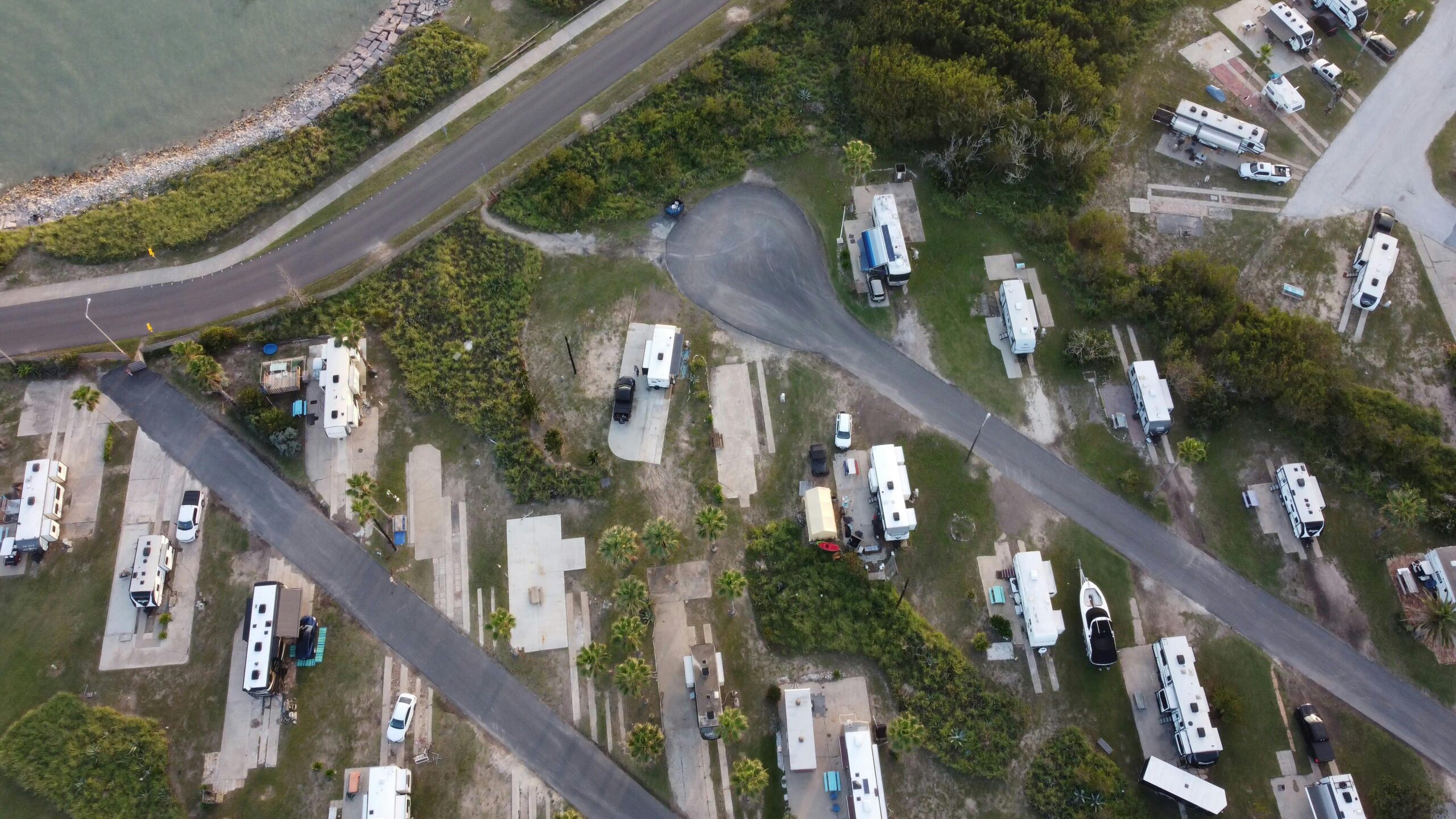Why Caravan Park insurance is so expensive
If you operate a caravan park (or are thinking of acquiring one), you’ve likely experienced shock when you've seen your insurance bill come through. As insurance brokers specialising in parks, we’re often asked why premiums are so high and what can be done about it. In this post, we’ll unpack the causes of high premiums (especially in northern and high-catastrophe locations), why the market is so tight, and illustrate why using Morgan Insurance Brokers your best bet for securing cover and managing costs.
The broad reasons premiums are high
Here are the key drivers of premium inflation in the caravan/holiday-park space:
Escalating natural-catastrophe and large loss exposure
- Parks are often located in coastal, floodplain, cyclone-prone or bushfire-exposed areas: close to waterways, the sea or in northern/climatic risk zones.
- Insurers are seeing more frequent and severe losses: storm damage, floods, large claims from amenities (swimming pools, water slides, jumping pillows) and the consequent business interruption.
- The size of assets: cabins, powered sites, amenities, communal buildings, infrastructure, the rebuild or repair cost is significant. And when a loss occurs, interruption of guest income compounds the cost.
- For parks in “northern locations” (or remote/regional) the challenge is often greater: insurers regard them as higher risk, harder to access, more exposed, and sometimes with less readily available mitigation/response services.
Shrinking insurer capacity and a hard insurance market
- There is a lack of insurers willing to take on caravan park risks — especially in higher-risk geographies. International insurers have pulled back from Australia’s leisure/tourism-accommodation risks.
- With fewer underwriters in the market, this reduces competitive pressure and results in higher premiums and less favourable terms (higher excesses, exclusions).
- Insurers that remain are more selective: they apply stricter risk criteria, higher excesses, exclude certain activities/locations (e.g., cyclone, flood).
- The “hard market” (where premiums rise, terms harden, availability tightens) is very evident in this sector.
Complex risk profile of caravan parks
- Unlike a standard business, a caravan park has many moving parts: guest accommodation (cabins, powered/unpowered sites), on-site amenities (pools, playgrounds, water-sports facilities), sometimes hire equipment or boats/kayaks, public liability insurance exposures, communal facilities. Insurers must price for all of these.
- Parks often face seasonal variations, sometimes remote access/limited services (fire brigade, storm response, drainage), which means higher potential for loss, or slower recovery.
- If a park is in a remote or regional “northern” location (e.g., far north Queensland, remote NT, outback WA) the remoteness itself increases risk: logistics, rebuild/repair costs, and access to services are more challenging.
Inflation, rebuild cost, supply chain and labour issues
- Rebuilding after a storm or major loss is more expensive than previously. Materials, labour, logistics have increased in cost. Insurers reflect that in premiums.
- Business interruption costs: the guest revenue lost while repairs happen is a major component of risk.
- The pool of assets (cabins, powered sites, communal amenities) has grown in many parks (to remain competitive), so overall exposure has increased.
Why northern, remote or high-catastrophe locations face worse pricing
- Exposure to cyclones/storms: Northern Australia (e.g., Queensland, NT) sees cyclones, severe tropical storms, flood-risk, which increases risk. Underwriters view those locations differently — higher premium or exclusions.
- Remoteness: Remote parks may have slower emergency services, longer access for rebuild/repair, higher transport/logistics cost — all increasing risk/claim cost.
- Market scarcity: Many underwriters may avoid or limit capacity for remote northern areas, meaning less competitive quotes and less choice for operators in those zones.
- Large losses: A single major event (cyclone/flood) can wipe out a park, or lead to massive claim exposures. Thus insurers load for “tail risk” (low‐frequency, high‐cost events) especially in those zones.
- Perceived clustering of risk: If many caravan parks are located in the same geography (coastal, floodplain), the insurer’s entire portfolio may be exposed simultaneously — this drives reinsurance cost which is passed to the client.
What does all this mean for a caravan park operator?
- Expect higher premiums, higher excesses, possible exclusions or restrictions (e.g., flood/cyclone cover may be excluded or loaded).
- Be aware that your location and exposure profile will heavily influence your premium: regional vs city, remote vs easily accessible, proximity to water, etc.
- Prepare for less market choice: fewer insurers willing to quote/expose themselves.
- Recognise that risk-management and mitigation matter: the better your preparedness and documentation of your processes, the stronger your negotiating position.
- Understand that insurance cost is a business cost, and in some situations operators may consider self-insurance or risk transfer strategies—but that’s only for those with sufficient capital and risk appetite.
How working with a specialist broker gives you the best chance
Access to specialist underwriting capacity
A broker who knows the caravan park industry inside out already has connections with insurers who actually understand how your business works and who are more likely to offer you a quote when the big, general insurers won’t. Because they know where to look, they can find niche providers and custom insurance options made for parks like yours, giving you more choice and better chances of getting the right cover.
Better risk presentation & documentation
A good broker doesn’t just hand your details to an insurer, they make sure your park looks its best on paper. That means pulling together all the right information about your property, how you maintain it, what safety measures you have in place, and how prepared you are for things like floods or storms. The more complete and professional your risk profile looks, the more confident insurers feel, which can help reduce how much they load onto your premium. For example, showing that you’ve got a solid cyclone or flood evacuation plan, proper drainage, and well-maintained playgrounds tells underwriters you take risk seriously and that can make a big difference in what you pay.
Comparative shopping and expert negotiation
Since there aren’t many insurers offering caravan park cover, having a broker who can shop around and negotiate on your behalf is a huge advantage. We'll do the legwork, comparing policies, talking to underwriters, and making sure you’re getting the best deal possible. And we don’t just look at the price; we'll help you understand the real value of each option, what’s actually covered, what’s excluded, the excess you’ll need to pay, and how good the claims service is when you really need it.
Ongoing advice and renewal strategy
A good broker keeps an eye on the market for you and helps you stay one step ahead when it comes to managing your insurance costs. They’ll give you practical advice on things like adjusting your excess, improving risk controls, or cutting back on activities that push up your premium. They’ll also help you see how your cover and costs stack up against similar parks, and work with you early on your renewal so you can plan ahead whether that’s making improvements, reducing risks, or finding smarter ways to keep your premiums under control.
Guidance on alternative strategies
If cover options are limited or the premiums are through the roof, a good broker can help you think outside the box. They’ll look at different ways to structure your insurance, like splitting property and liability cover, layering policies, or even exploring partial self-insurance or specialist programs. They can also talk you through what cover you really need versus what you might be able to live without, making sure you understand the risks either way. It’s all about finding practical ways to reduce exposure and make your insurance more affordable without leaving you unprotected.
If you’re finding caravan park insurance hard to secure or the premiums are climbing higher every year, you’re not alone, but you don’t have to face it on your own either. Working with Morgan Insurance Brokers who understands the caravan park industry can make all the difference. We’ll do the hard work for you finding the right insurers, comparing cover options, and negotiating better terms so you can focus on running your park.
Get in touch today to chat about your options and see how we can help you find the right cover at the right price.
Understanding Management Liability Insurance for Nightclubs
What Is Management Liability Insurance?
The Key Sections of a Management Liability Policy
Directors & Officers (D&O) Liability
Nightclub example: A director faces a claim from an investor alleging financial mismanagement of the club’s funds.
Employment Practices Liability
Nightclub example: A dismissed bartender lodges an unfair dismissal claim after alleging workplace harassment.
Crime (Fidelity) Cover
Nightclub example: A manager discovers that takings have been skimmed from the till or EFTPOS system over several months.
Statutory Liability
Nightclub example: A local council fines the nightclub for breaching noise restrictions or liquor licensing regulations.
Tax Audit Cover
Nightclub example: The ATO initiates an audit of payroll records and cash handling practices.
How Much Does Management Liability Insurance Cost?
Tailoring Management Liability to Your Club’s Risk
-
Venues with live entertainment may have greater regulatory risk.
-
Late-trading venues may have higher employment and security risks.
-
Clubs operating across multiple sites may need broader D&O protection.
Why Nightclubs Need Specialist Insurance Support
Morgan Insurance Brokers: Specialists in Nightclub Cover
How Morgan Insurance Brokers Help When It Matters Most
Final Thoughts
Business Interruption Insurance for Commercial Landlords: Protecting Your Rental Income
As a commercial landlord, your rental income is important. The last thing you need is to find yourself without that income, for whatever reason. Imagine your property is severely damaged by a flood, and your tenants are temporarily relieved from paying rent. How do you navigate your rental income when it’s not coming in?
That’s where Business Interruption Insurance is vital. It is designed to protect your income and cash flow in the event of emergencies, when you are unable to access your rental income. So, when you need a safety net for the unforeseen circumstances that can impact your rental income, you’ll need to consider business interruption insurance.
Morgan Insurance is dedicated to ensuring you understand your insurance policy and how it will protect you. So, let’s break it down.
What Is Business Interruption Insurance?
It provides financial stability and protection when operations are disrupted due to a range of events, including fire, storms, and other catastrophes that cause physical damage to a property. When these damages are made, it often means that the business cannot proceed as normal, especially when the property becomes uninhabitable.
Business interruption insurance covers the loss of income caused by the events, which helps you maintain your financial stability until your property is recovered. A typical coverage will protect:
- Lost profits, which are determined by previous performance rates
- Fixed costs (i.e. rent, wages, utility costs)
- Additional expenses, such as temporary relocation costs, replacement equipment rent costs and any additional labour fees.
- Taxes
- Civil authority coverage, which is the losses incurred if authorities order a shutdown or restrict access to the property.
As a commercial landlord, your business interruption insurance will usually be an extension of your commercial property insurance. Your property insurance will usually protect the physical element of your property, whereas business interruption insurance protects your income in the face of serious events and damage.
What Does It Not Cover?
A good insurance policy is tailored to your specific needs. However, there are general exclusions to business interruption insurance, which means the policy may not cover you. This includes, but is not limited to, the following:
- Flood or earthquake damage
- Income that is undocumented in business records
- Pandemic and virus impact
- Business insolvency or discontinuation
- Terrorism damage
Your Guide To Understanding Your Policy
Navigating your business interruption insurance policy doesn’t need to be complicated when you have a broker like Morgan Insurance by your side to ensure that every aspect of your cover is clear. So, here’s what you need to know and understand about your policy.
Conditions of Your Policy
There will be specific guidelines and conditions to your policy that outline your responsibility as the party who is insured. For instance, it is your duty as a commercial landlord to maintain safety measures and report changes accordingly, so that if you need to claim on your insurance, it is clear that every measure has been followed.
Coverage Details
It is important to be clear on what your coverage will protect and what is excluded. This ensures that if you need to claim on your insurance, there are no surprises, and you’re prepared for what will be included in your financial coverage.
Declarations
This is the first section of your policy and details basic information, including your name, address and insurer details, coverage dates and limits. Any changes must be reported so that your policy is updated and you’re clear on the terms and limitations of your coverage.
The truth is, it’s all in the details of your insurance policy. It is easy to miss information, which can cause issues when trying to claim on your cover. With Morgan Insurance, you can navigate your insurance policy coverage details and claims with confidence and clarity.
How We Help
At Morgan Insurance, our priority is to provide you with clear information and guidance on everything to do with your insurance policy. From start to finish, we can help secure an insurance policy that is suited to your needs, review your current policy, and help you make a claim when the time comes.
Our team of brokers are experts, so they can clarify the terms of your policy, negotiate a better one, analyse any potential risks and limits to your coverage and manage your claims process for successful outcomes.
It can be overwhelming trying to understand and navigate your business interruption insurance alone as a commercial landlord. We allow you to focus that time and energy on running your properties, and we’ll handle the rest.
Morgan Insurance: Your Insurance Partners
We partner with landlords across Australia to manage their insurance solutions with confidence and expertise. Understanding your policy and its terms is essential to ensuring you’re prepared in the event of a catastrophe that damages your property.
Business interruption insurance can protect you financially, and Morgan Insurance are your broker who will help you access the safety you need, when you need it.
Start with us today.
How Morgan Insurance Brokers Can Save You Money on your nightclub insurance
Why Nightclub Insurance Costs So Much
Alcohol Service:
-
Injuries and Accidents: Intoxicated patrons are more likely to slip, trip, or fall whether on the dance floor, in the bathrooms, or on the way out the door. These incidents often lead to public liability claims against the venue.
-
Altercations and Assaults: Alcohol can sometimes fuel aggression. Even with security staff and responsible service practices, fights or altercations can happen, leading to property damage or injury claims from patrons or staff.
-
Damage to Property: Broken glassware, vandalised restrooms, and damaged furnishings are all common outcomes of a busy night in a club environment. These add up to costly property insurance claims.
-
Third-Party Liability: If a patron leaves intoxicated and later causes harm to themselves or others, the nightclub could be held partly liable — particularly if responsible service protocols weren’t followed.
-
Regulatory Breaches: Serving alcohol to minors or failing to adhere to responsible service laws can result in hefty fines, licence suspension, or even closure — another factor that increases perceived risk in the eyes of insurers.
Crowds and Dancing:
-
Slips, Trips, and Falls: Spilled drinks, slick dance floors, and narrow walkways are a recipe for injuries. Even with diligent cleaning staff, it’s impossible to eliminate every hazard during a busy night.
-
Overcrowding: Too many people in one space can cause accidents or make it harder for staff to respond quickly when something goes wrong. Insurers factor in venue capacity and crowd management practices when setting premiums.
-
Lighting and Visibility: Nightclubs rely on dim or strobe lighting to set the mood, but this makes it harder to spot obstacles or spills, increasing the risk of falls.
-
Excited or Intoxicated Patrons: Dancing, jumping, and energetic behaviour can easily lead to bumps, falls, or accidental injuries — even when no one means any harm.
-
Equipment and Staging: Elevated stages, DJ setups, or lighting rigs introduce additional trip hazards and potential for injury if not properly secured.
Security and Compliance:
-
Licensing and Legal Obligations: Nightclubs must hold the correct liquor licences, entertainment permits, and occupancy certificates. Any breaches — such as serving minors or exceeding capacity limits — can result in fines, licence suspensions, or even forced closure. Insurers see this as a potential interruption risk.
-
Crowd Control and Security Staff: Ensuring adequate, trained security is essential to prevent incidents like fights, theft, or overcapacity. If your venue can’t demonstrate strong crowd control measures, insurers will often increase premiums to compensate for perceived risk.
-
Safety and Emergency Standards: Fire exits, alarms, and evacuation procedures must meet local safety codes. Insurers look closely at compliance because failure in this area can lead to devastating outcomes and large-scale liability claims.
-
Incident Reporting and Documentation: Venues are expected to maintain accurate logs of any incidents, refusals of service, and security actions. Insurers often request this documentation when assessing claims — and missing or incomplete records can make claims more difficult and costly.
-
Reputation and Risk History: A history of breaches, complaints, or prior claims signals to insurers that the venue may not have sufficient controls in place and that directly influences your premium.
How Morgan Insurance Brokers Gets You the Best Deal
We Search the Entire Market:
Specialist Knowledge:
Tailored Coverage:
Claims Support:
Proven Results:
Don’t Overpay for Nightclub Insurance
A Landlord's Guide to Commercial Property Insurance: Beyond the Building
Commercial property insurance doesn’t need to be complex when you navigate it with Morgan Insurance. However, a common misconception is that all you really need is for your building structure to be insured. The truth is, there’s more to commercial property insurance than just the building.
In the event of a catastrophe that impacts your property, you’ll need to think about more than just the building structure. For instance, legal liability and lost income. These are elements that commercial property insurance helps protect you against, so you can ensure your assets and investments are properly protected. How do you determine what you’re liable for Vs what your tenant is liable for? Morgan Insurance can help break down your commercial property insurance.
What is Commercial Property Insurance?
Commercial property insurance is a type of insurance policy that protects property owners and landlords from financial losses that can be incurred from damage to their commercial buildings and assets. These damages can be caused by fire, theft, vandalism, storm or water damage and natural disasters. The insurance covers any physical damage and lost assets, but it also compensates for any lost income and ongoing expenses from interrupted operations. A landlord or property owner needs to be insured with commercial property insurance as it separates their liability from any damages or losses caused to the property or by the tenant.
To ensure that your property is a long-term investment that you can benefit from, considering commercial property insurance is crucial.
What Does My Insurance Not Cover?
All commercial property insurance policies are different depending on your needs, your insurer and your agreement. However, typical exclusions include:
- Damage caused by poor maintenance and care
- Tenant theft or fraud
- Losses that exclude policy limits
It’s important to be clear on the exclusions of your policy so you can be prepared for what is not covered and included. With Morgan Insurance as your expert advisers, we’ll make sure that the terms of your policy are clear and understood. Reach out to our team today for more information.
Commercial Property Insurance: Breakdown
So, although your building is a clear asset and investment, commercial property insurance protects more than just your property. The cover includes:
Public Liability
Your commercial property insurance will provide you with financial protection if a third party (i.e. a customer) is injured or their property is damaged inside your building and premises. An example may be if a visitor slips on a wet floor area. As the property owner, you would be liable for their injury in a legal procedure. However, with your public liability inclusion in your cover, you can ensure that you’re protected in these scenarios.
Business Interruption and Loss of Rent
In the event of an emergency or unforeseen circumstance, your property may become uninhabitable, which can lead to loss of rental income, otherwise known as business interruption. With commercial property insurance, you can continue making your mortgage payments while the property is being repaired and you’re not receiving rental payments. Thus, it’s vital to maintain a steady cash flow and protect the longevity of your property as an investment.
Machinery Breakdown and Glass Coverage
When machinery breaks down or glass is broken, the costs to repair or replace can be high. It is common for boilers, washing machines or air conditioning systems to fail and break, so you don’t want to be left covering that cost alone. How often do children break windows when they’re playing outdoor sports? This is damage you may be left paying for if you’re not properly covered with commercial property insurance.
Your Insurance Guide With Morgan Insurance
Understanding your commercial property insurance is easy when you have Morgan Insurance by your side. We’re experts in navigating the market and finding you an insurance policy that makes sense for you and your investments. So, protect more than just your building when you partner with us, and we’ll make sure you know what you’re covered for. With us by your side, you can understand what you’re liable for and what you’re tenants are liable for, so there isn’t any confusion.
It’s easy to get started. Our team of experts can review your current policy for clarity and find you a better one. Get in touch today.
Making the Switch: Moving from a Claims-Made Policy to an Occurrence-Based Policy for Childcare Providers
Moving from a Claims-Made Policy to an Occurrence-Based Policy for Childcare Providers can feel confusing, but it’s one of the most important decisions you’ll make for your business. Having the right insurance cover isn’t just about meeting regulatory requirements, i’s about true peace of mind. Knowing the difference between claims-made and occurrence-based policies can make a world of difference in how well your childcare business is protected.
Understanding the Difference
A claims-made policy only covers claims that are made (reported) during the period the policy is active regardless of when the incident occurred. This means that if your policy expires or you switch insurers, you could lose coverage for past events unless you purchase run-off cover or an extended reporting period.
An occurrence-based policy, on the other hand, covers incidents that occur during the policy period, no matter when a claim is made. Even if the claim arises years later, as long as the event happened during the time your policy was in force, you’re protected.
For childcare providers, where issues or complaints can arise months or even years after an incident, the difference is critical.
The Problem with Claims-Made Cover
Many insurers offer claims-made professional indemnity and public liability policies, particularly in the childcare and education sectors. While these can appear cost-effective upfront, they carry ongoing obligations:
- You must maintain continuous cover with no gaps.
- You’ll need to purchase run-off cover if you stop operating or change insurers.
- A missed renewal or gap in cover can mean losing protection for past work.
This can lead to stress, unexpected costs, and potential uninsured risks especially during transitions or changes in business structure.
The Occurrence-Based Advantage
That’s why our insurance solution for childcare providers is built differently.
We can source Combined Liability cover including Public & Products Liability and Professional Indemnity all written on an occurrence basis.
This means:
✅ You’re covered for incidents that occur during the policy period, even if the claim arises years later.
✅ You never have to worry about purchasing or maintaining run-off cover.
✅ You enjoy continuous protection and long-term peace of mind.
Seamless Transition, No Gaps in Cover
We also understand that switching from a claims-made insurer can be daunting, especially when it comes to ensuring there’s no gap in protection.
To make the transition smooth, our Public Liability cover includes a retroactive date, so any incidents that occurred before your new policy starts (while you were covered under your previous claims-made policy) remain protected.
This ensures complete continuity of cover so you can move forward with confidence knowing that your business, your staff, and the children in your care are always protected.
Why Choose Morgan Insurance Brokers?
At Morgan Insurance Brokers, we take the complexity out of insurance for childcare providers.
We understand that no two childcare businesses are the same each has its own unique risks, requirements, and regulatory obligations.
That’s why we approach a large panel of reputable insurers on your behalf, ensuring you get the most comprehensive and competitive cover available for your specific needs.
Our role as your broker means you gain access to:
- Tailored coverage that fits your business, not a one-size-fits-all policy.
- Expert advice from insurance specialists who understand the childcare industry.
- Claims support and advocacy we represent you, not the insurer, if you ever need to make a claim.
- Ongoing reviews and updates to ensure your policy remains suitable as your business evolves.
With Morgan Insurance Brokers, you’re not just buying insurance, you’re gaining a partner who’s committed to protecting your livelihood and helping your business thrive.
In Summary
Moving from a Claims-Made Policy to an Occurrence-Based Policy for Childcare Providers policy offers long-term simplicity and security. For childcare providers, that means less time worrying about insurance technicalities and more time focusing on what matters most, providing a safe, nurturing environment for children.
With our Combined Liability policy, you’ll have:
- Public & Products Liability and Professional Indemnity on an occurrence basis
- No need for run-off cover
- A retroactive date for Public Liability to eliminate any gaps in protection
- Expert guidance and access to a wide panel of insurers through Morgan Insurance Brokers
Contact us today to make the change.
Changing from a Sole Trader to a Company: How to Update Your Business Insurance
Transitioning from a sole trader to a company structure is an exciting step for any business owner. It often marks growth, new opportunities, and greater professionalism. But it’s also a time to review your insurance coverage because your risks and legal responsibilities change too.
Why You Need to Update Your Insurance When You Become a Company
When you move from a sole trader to a company, your business becomes a separate legal entity. This means your existing insurance policy which is in your personal name may no longer provide the right protection.
In most cases, you’ll need to update your insurance details or take out a new policy under the company name.
Your insurer will usually ask questions such as:
- Are the business activities the same?
If your operations, services, or products have changed, this can affect the type and level of cover required. - Are there common directors from the previous entity?
Insurers look at the people managing the business to assess continuity and risk. - Has your turnover increased?
Higher turnover can mean increased exposure and insurers may adjust your premium accordingly. - Have there been any previous or potential claims?
Claims history from the sole trader period can still be relevant, especially for professional indemnity or liability policies.
Updating your insurance ensures there are no gaps in cover during your transition, and that your new company is fully protected from day one.
The Benefits of Reviewing Your Cover with Morgan Insurance Brokers
When your business structure changes, it’s the perfect time to review your insurance portfolio. Working with Morgan Insurance Brokers means you’ll have a dedicated expert who:
- Understands your business and industry risks
- Reviews your existing policies for suitability under your new company
- Shops the market for the best available cover and pricing
- Helps you understand your legal obligations as a director and company officer
- Supports you with claims management and ongoing advice
With Morgan Insurance Brokers, you can rest assured you’re getting comprehensive, tailored protection, not a one-size-fits-all policy.
Key Insurances a Company Should Consider
When you incorporate, your insurance needs typically expand. Below are the core policies every company should review or establish:
- Public Liability Insurance
Public Liability Insurance Protects your business against claims for personal injury or property damage caused to third parties. - Business Insurance
Covers your premises, stock, equipment, and contents against loss, damage, or theft. - Management Liability Insurance
Protects directors and officers from claims related to management decisions including breaches of duty, misrepresentation, or employee issues. - Cyber Insurance
Essential in today’s digital world. Covers data breaches, cyber-attacks, and recovery costs. - Motor Insurance
Covers company-owned vehicles for accidents, damage, or theft.
By ensuring each of these areas is adequately protected, you safeguard your company’s assets, reputation, and future.
Final Thoughts
Changing your business structure is a major milestone but don’t let outdated insurance put your success at risk.
Speak with Morgan Insurance Brokers today to review your current cover and find the best protection for your new company structure.
The Ultimate Guide To Making A Business Insurance Claim
Every business owner knows how difficult it can be to navigate insurance claims, especially when there’s so much else on your plate. When there’s a burglary or a burst pipe in the staff bathroom, the last thing you need is the additional pressure of navigating a business insurance claim. With Morgan Insurance Brokers by your side, you don’t need to panic; we’ll make sure everything is handled.
We understand you’ll need to tend to the incident and situation at hand, so we’ll make it easy for you to make your business insurance claim and get things moving. So, how do you get started with making your claim?
First things first, reach out to your insurance broker, and we’ll help you get started.
What You Need To Do As A Business Owner
The most important steps are what you’re responsible for after the incident. You should prioritise the safety of your staff, customers, and business, and ensure that you have taken the appropriate measures to prevent the incident from escalating into danger or severity. For example, if there is a broken window, you should attempt to board it up to ensure the safety of your business or workplace is maintained.
To ensure that your claim is properly assessed, you should take photos of the damage or document any missing items so that you can open up your claim. Taking your time to ensure these steps are completed will help your claim be processed efficiently and help you achieve a successful outcome.
Step 1: Contact Us
As your advocate when you need to submit a claim, your broker should be your first point of call. At Morgan Insurance, we’re committed to ensuring we simplify the claims process for you so you don’t need to concern yourself with the nitty-gritty.
Your broker will provide you with initial advice on what you need to do and help you understand your policy and what it will cover you for. They’ll ensure that you understand the process and what needs to be done, so you can rest assured that we’ll handle your claim appropriately. Once this is clear, they’ll be able to lodge the claim on your behalf and ensure it is done correctly and compliant.
Step 2: Claim Lodgement
As your broker will lodge the claim for you, they’ll need to gather some information from you. Ensuring that you’re transparent and direct with your broker is essential during this process, as it will help simplify the paperwork. Your broker will most likely need:
- Your policy number
- The date, time and address of the incident
- A description of the events
- Contact details for any members involved or witnesses
- Photos and documents of damaged or lost items
Your broker will communicate with the insurer on your behalf and get your claim submitted seamlessly and efficiently.
Step 3: Assessment
During the assessment of your claim, your insurer will appoint a loss adjuster/assessor, who will assess the extent of the damage and loss. During their assessment of the scenario, they typically:
- Visit the site
- Request the evidence you collected for the claim
- Liaise with your broker to understand the details of the incident
Your broker will keep you in the loop with how the assessment process is going, so you know what to expect from your claim outcome.
Step 4: Settlement
Based on the assessor’s report and your policy’s terms, your insurer will provide you with a settlement offer. The support of your broker will be paramount at this stage, as they will be able to review your settlement offer to ensure that it is fair and in line with your policy’s entitlements. And, if the settlement offer isn’t sufficient, they will negotiate on your behalf to get a better settlement offer.
Or, if you simply need the details broken down, your broker will explain everything and let you know your options.
Morgan Insurance Brokers: As Your Business Partner
Making a business insurance claim doesn’t have to be difficult when you choose Morgan Insurance as your broker and partner. We’ll be there with you every step of the way to ensure the process is clear, efficient and compliant.
With Morgan Insurance as your broker, you can focus on recovering your business after the incident and let us do what we do best. We’re there for you long-term, so we’ll help you secure a policy and then help you make and navigate a claim. It’s never been easier.
Get started by reaching out to our team today.
The Impact Of High-Risk Hobbies on Your Income Protection Premiums
There’s more to life than your 9-to-5 job, and your hobbies are proof of that. From motorsports to skydiving, your hobbies balance your work life, so it’s not all work and no play. The truth is, high-risk hobbies are great for adrenaline boosting, but they give insurers more to think about when it comes to your income protection insurance.
Income protection insurance is your financial safety net when you find yourself out of work due to an injury or illness. High-risk hobbies increase your risk of being out of work due to an injury, so the risk for an insurer is also higher, as you’re more likely to need to claim on your cover.
An element that can be particularly affected is your premiums. Insurers will evaluate your scenario to determine the cost and conditions of your income protection insurance. So, how do your weekend plans reflect in your cover? Understand what you can do with Morgan Insurance Brokers.
What Is Considered A High-Risk Hobby?
Insurers will assess your personal life to determine your scenario and the likelihood of needing to claim on your cover. This includes aspects such as your age, general health, profession and lifestyle (hobbies, activities, etc). These are all elements that can impact the cost of your income protection insurance, as they directly correlate to the chances of you being out of work. Some examples of high-risk hobbies include:
- Motorsports
- Rock Climbing or Mountain Climbing
- Scuba Diving
- Skydiving or Paragliding
- High Contact Sports (rugby, martial arts, etc.)
When insurers look into your hobbies, they’ll assess specific conditions to determine how much of a risk they pose to your career and income. For instance, how often you perform these hobbies, the level you participate at (i.e amateur vs professional), and what safety measures or certifications you hold to perform the activities.
How Does It Impact My Policy?
The important thing to remember is that your high-risk hobbies don’t mean that you can’t get income protection insurance at all. But it will impact your income insurance premiums.
Your premium refers to the regular payments you’ll need to make to the insurer to keep your policy and coverage active. So, with the analysis of your hobbies and how likely they are to cause an injury that leaves you out of work, insurers will increase the cost of your premium to make it worth their time and liability.
In some cases, loadings may be applied to your base premium, where an extra cost will be added due to the risk of your activities. Or, they may choose to apply exclusions where claims cannot be made if it’s from an injury related to the activity or hobby.
Navigating Your Hobbies and Insurance Cover With Morgan Insurance
The best thing you can do is be honest with your insurer, as you have a legal duty of disclosure whereby you’re required to provide accurate and truthful information on your application. Failure to disclose an important piece of information, such as your participation in high-risk activities, can result in declined claims or policy cancellations, leaving you completely uninsured. To avoid financial distress or being unprotected when you’re trying to recover from an injury or illness, it is best to be honest during your income protection insurance application.
If you’re nervous about navigating it alone, that’s what Morgan Insurance Brokers is for. We’re experts in the market, so we’ll help you navigate which insurers are more understanding towards high-risk hobbies. We’ll handle your application from start to finish so we can ensure your application is honest and appeals to your experience and safety measures, so that your activities pose less of a risk to insurers.
We’ll search the market to find you an insurance policy that works for you and your lifestyle, without breaking the bank. With our market knowledge and experience, we’ll ensure that you’re satisfied with your cover and that you’re appropriately covered for your high-risk hobbies, so you can live your life without worrying about how it will impact your career and financial future.
Contact our team for more information.
No Risk With Morgan Insurance
We understand how important it is that you live your life to the fullest and enjoy those adrenaline-pumping hobbies that you love. It’s important to be protected against any injuries or illnesses for the worst-case scenario, and to ensure that you won’t suffer financially. That’s why we’ll find you the best policy, so you don’t need to worry about the ins and outs.
If you have any questions or you’re ready to get protected with Morgan Insurance, reach out to our team today.
How to Reduce Strata Insurance Premiums
Premiums for stratas in Queensland are under pressure. Increases of 15-20 % are being observed, driven by factors such as rising building valuations, inflation in repair/maintenance costs, more frequent natural-hazard events, and insurers becoming more cautious.
Insurance is mandatory in many respects but there are practical steps a committee can take to reduce premiums.
This article sets out those steps, highlights what must be insured vs what may be optional, and addresses common (but risky) suggestions.
What Must Be Insured in QLD & What You Should Check
Before you focus purely on cost-cutting, you need to understand your baseline obligations:
-
Queensland, every body corporate is legally required to hold compulsory strata insurance. This includes cover for the building structure and common property as outlined under state legislation.
-
Beyond these mandatory policies, there are also optional covers that can be removed, such as or office bearers protection, for example which can be tailored to suit the specific needs and risk tolerance of each property.
-
It is important to ensure your building’s sum insured reflects an accurate replacement value. Under-insuring can leave owners financially exposed if a major loss occurs, while over-insuring can inflate premiums unnecessarily.
-
Factors such as proactive maintenance, absence of structural defects, risk-mitigation measures, and a strong claims history can all strengthen your position when negotiating premiums. A well-maintained property not only enhances safety but can also lead to more competitive strata insurance pricing.
Strategies to Reduce Premiums
Here are practical strategies that your scheme’s strata committee can adopt.
1. Improve the building’s maintenance and reduce risk
Regular Roof and Gutter Inspections
Blocked gutters and damaged roofing are common causes of water ingress and insurance claims. Schedule bi-annual inspections, especially before storm season, to identify leaks, cracked tiles, or rusted sections early.
Maintain Plumbing and Hot Water Systems
Burst pipes and faulty hot water systems are among the most frequent strata claims. Have a licensed plumber inspect shared plumbing annually, and encourage lot owners to replace aging flexi-hoses before they fail.
Fire Safety and Electrical Compliance Checks
Ensure fire alarms, extinguishers, and emergency lighting meet Australian Standards. Conduct periodic electrical safety inspections to identify outdated wiring or overloaded circuits that could cause fire damage.
Pest Control and Termite Management
Implement a regular pest control program to prevent termites, which can cause extensive structural damage not always covered by insurance. Keeping detailed inspection records also demonstrates proactive maintenance to insurers.
Structural and Facade Maintenance
Inspect external walls, balconies, and waterproofing membranes for cracks or deterioration. Timely repairs reduce the likelihood of costly structural or water-damage claims and improve the building’s overall risk rating.
Common Area Upkeep and Safety Measures
Keep pathways, carparks, and stairwells well lit and free of hazards. Installing non-slip surfaces, handrails, and signage can minimise liability risks and improve your property’s insurability profile.
Undertake risk-mitigation works
Reinforce Roofing and Windows in Cyclone-Prone Regions
In Queensland’s coastal zones, upgrading to cyclone-rated roofing materials, securing roof tie-downs, and installing impact-resistant windows or shutters can help prevent major storm damage and lower insurance costs.
Upgrade Fire Safety Systems
Install modern smoke alarms, sprinkler systems, and fire doors that comply with the latest Australian Standards.
Improve Drainage and Water Management
Ensure gutters, downpipes, and drainage systems are clear and effective to prevent water ingress and flood-related claims. Installing sump pumps or raising electrical systems in flood-prone basements can also reduce risk exposure.
Replace High-Risk Materials
Identify and replace combustible cladding, outdated wiring, or deteriorating plumbing materials that increase the likelihood of fire or water damage claims.
2. Review Your Policy Setup and Coverage
The way your strata insurance policy is structured can make a big difference to your premium. A few smart adjustments can help lower costs without compromising on essential protection.
Increase Your Excess
Choosing a higher excess (the amount you pay if you make a claim) can reduce your annual premium. This approach suits well-managed buildings with a solid maintenance record, minimal claims, and healthy sinking funds to cover minor repairs when needed.
Reassess Optional Cover
Not every add-on policy is essential. Review your existing coverage and consider removing optional extras that don’t apply to your building’s situation. For example, some liability or committee-related covers may not be necessary if your scheme doesn’t have those exposures. However, make sure any changes comply with Queensland’s legal insurance requirements, removing compulsory cover could leave your body corporate non-compliant or financially exposed.
Check Your Building Valuation
Premiums are directly linked to your building’s insured value. If your property is over-valued, you may be paying more than you need to. Arrange a professional valuation every few years to ensure your insurance reflects the true rebuilding cost, not an inflated estimate. Just remember: under-insuring can be just as costly in the long run if a major claim occurs.
3. Manage Claims Wisely
Your claims history is one of the biggest factors influencing your premium.
Avoid Small, Frequent Claims
Whenever possible, handle minor repairs through the body corporate’s maintenance budget rather than lodging small insurance claims. A high frequency of minor claims can make your building look higher-risk to insurers, driving future premiums up.
Promote Preventative Maintenance
Encourage all owners and residents to take responsibility for upkeep inside their lots such as replacing worn washing machine hoses or fixing minor leaks promptly. Preventing water damage and similar issues helps protect common property and keeps your scheme’s claims record clean.
What to Check Carefully (and What’s Risky)
There are some suggestions that appear often but must be treated with caution:
Not insuring for certain covers (e.g., “office bearers liability”) because you don’t have a committee:
- First check: Does your legislation or regulation require such cover? If so, you cannot remove it.
- If not required, then you may consider whether your scheme’s risk exposure justifies the cover or whether it is prudent to omit it. But removing liability cover because “we don’t have a committee” might expose the scheme to risk if a committee is formed or individual office-bearers act (and hence liability arises). You need to assess the risk carefully and seek professional advice.
Not insuring for flood insurance:
- Be very cautious. If your building is in a flood-prone area (coastal/river/flood plain), omitting flood cover may expose owners or lot holders to large loss. Some policies may exclude flood or treat flood differently, you must check the policy wording.
- Many insurer increases are due to natural hazard exposures; one way to reduce premiums is mitigation, not necessarily removal of cover. Also, note that omitting flood cover may affect resale value or financing.
Under-insuring the building (i.e., choosing a lower sum insured than replacement value):
While reducing the sum insured may lower premium, under-insuring can lead to serious problems, if there is a large claim and the insured sum is insufficient, the body corporate may have to top up. Good practice is to have the building professionally valued, and update regularly.
Summary Checklist for the Committee
-
Get a recent building replacement valuation.
-
Ensure you understand what covers are compulsory vs optional for your scheme
-
Work with a specialist broker who can get multiple quotes and negotiate.
-
Implement a maintenance and risk mitigation plan
- Consider higher excesses or selective cover removal
-
Avoid making small claims if possible.
-
Owners should understand what is being insured, how premium is calculated, what commissions/fees are included.
Partner with a Specialist Broker Like Morgan Insurance Brokers
Navigating strata insurance can be complex, especially when balancing mandatory coverage requirements with the need to control premium costs. This is where working with an experienced, strata-focused broker such as Morgan Insurance Brokers can make a significant difference.
Morgan Insurance Brokers specialise in residential and commercial strata insurance across Queensland and understand the nuances of local legislation, building risk profiles, and insurer appetites. Their team can:
-
Compare quotes across multiple insurers to ensure you’re receiving the most competitive premium available.
-
Review your current coverage to identify unnecessary add-ons or gaps that could leave your scheme under- or over-insured.
-
Negotiate with insurers on your behalf, leveraging long-standing relationships and specialist knowledge to achieve fairer pricing and broader cover.
- Provide transparent advice around commissions, fees, and policy structures, helping committees make informed decisions with full confidence.
By partnering with a broker that genuinely understands strata insurance your body corporate can secure more tailored protection, better pricing, and the peace of mind that comes from expert guidance.
Final Thoughts
Lowering your strata insurance premium isn’t about cutting corners, it’s about being proactive and strategic. The goal is to make your building as safe, well-maintained, and low-risk as possible, so insurers view it more favourably. That means focusing on preventative maintenance, keeping your building in good condition, and making sure your insurance policy accurately reflects your needs, not paying for extras you don’t require.
While broader factors like natural disasters, rising construction costs, and inflation can push premiums up across Queensland, there’s still a lot within your control. A well-managed body corporate, with regular maintenance, a clean claims record, and the support of a specialist strata insurance broker like Morgan Insurance Brokers, will always be in a stronger position to negotiate fair pricing and secure quality protection.










